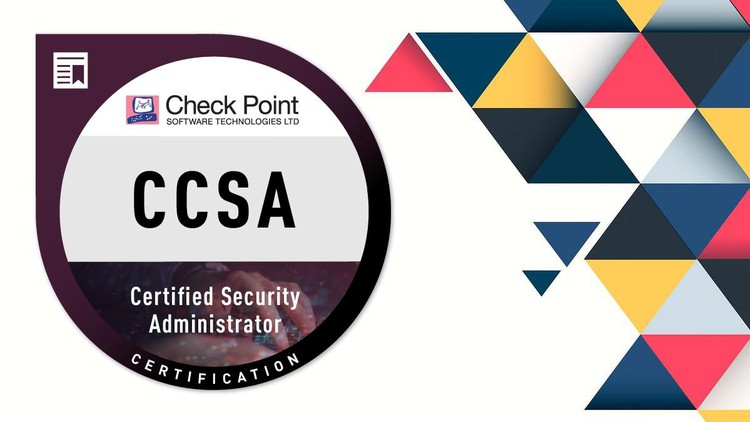- Home
- -
- Checkpoint
- -
- Checkpoint Certified Security Administrator

Checkpoint Certified Security Administrator
The Check Point Certified Security Administrator (CCSA) is a certification offered by Check Point Software Technologies. This certification is designed for individuals who want to validate their skills and knowledge in managing Check Point security solutions.
To become a Check Point Certified Security Administrator, you typically need to pass the CCSA exam.
Who should do This Course
The Check Point Certified Security Administrator (CCSA) course is ideal for individuals engaged in the day-to-day operation of Check Point security solutions, making it particularly suitable for network and security administrators. This certification is designed for those responsible for implementing, configuring, and managing Check Point products in a professional setting. While there are no strict prerequisites for the CCSA course, candidates are expected to possess a foundational understanding of networking concepts, basic operating system skills, and a grasp of general security principles. Familiarity with Check Point security products is recommended but not mandatory. As an entry-level certification, CCSA serves as a valuable starting point for individuals new to Check Point technologies. For those seeking further advancement, Check Point offers additional certifications, such as the Check Point Certified Security Expert (CCSE). It's recommended that candidates review the specific requirements and recommendations provided by Check Point before enrolling, and official training courses are available to enhance exam preparedness.
Duration : 2 Months
Exam Code : 156-605: Check Point Certified Security Administrator R81
The Check Point Certified Security Administrator (CCSA) exam is a pivotal component of the CCSA certification, testing candidates on their proficiency in managing Check Point security solutions. Typically conducted in a computer-based format, the exam structure often revolves around multiple-choice questions (MCQs), varying in complexity from fundamental knowledge to scenario-based problem-solving. The duration of the CCSA exam may vary, and achieving a minimum passing score is essential for certification attainmen
Why INFOBIT :
levate your cybersecurity skills with Infobit Technologies' Check Point training program, a premier offering in the high-end IT education industry. Our curriculum is meticulously designed to immerse you in the latest technologies and industry best practices, ensuring you are well-equipped to navigate the complexities of contemporary digital security. Delivered by expert instructors, including Microsoft Certified Trainers and seasoned professionals, the training provides a unique blend of theoretical knowledge and real-world insights. Our emphasis on hands-on learning is reinforced through dedicated lab facilities, available conveniently from 10 AM to 7 PM, allowing you to gain practical experience in a controlled environment. As part of our commitment to your success, we extend job assistance, connecting you with opportunities in the IT security domain. Whether you're a seasoned professional or embarking on a new cybersecurity journey, our Check Point training at Infobit Technologies is designed to empower you with the skills demanded by today's ever-evolving IT landscape. Enroll today and join us in shaping IT professionals for tomorrow's challenges.Course Content:
Course Content :
1. Introduction to Check Point Technology:
- Security Gateway and Management Server architecture
- Check Point security solutions overview
- Deployment scenarios and considerations
2. Security Policy Management:
- Using SmartConsole for policy management
- Rulebase concepts and elements
- Objects and groups in the policy
3. Monitoring Traffic and Connections:
- Monitoring tools (SmartView Tracker)
- Traffic and connection monitoring
- Log files and interpretation
4. Network Address Translation (NAT):
- NAT concepts and configurations
- Hide NAT, Static NAT, and PAT
5. Basic Concepts of VPN:
- Virtual Private Networks (VPNs) overview
- Site-to-Site VPN configuration
6. User Access Management:
- Identity Awareness and User Authentication
- LDAP and Active Directory integration
- Authentication methods and strategies
7. Working with ClusterXL:
- High Availability concepts
- ClusterXL deployment and configuration
8. Administrator Task Implementation:
- Check Point tools and utilities
- System management and troubleshooting

